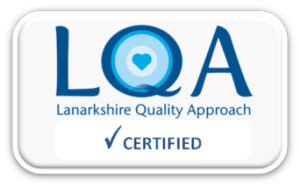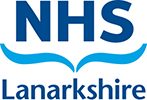Neonatal nutritional information pack
Information for patients
NHS Lanarkshire Neonatal Department
PIL.GHOPTF.21_20653.L
Neonatal Enteral Nutrient Requirements
| Nutrient | Recommended Intakes | Reference Nutrient Intake (2) | ||
| <1kg (stable growing) | 1.8kg Term (stable growing) | Term (0-3 months) | ||
| Fluid (ml/kg) | 135-200 | 150 | ||
| Energy (kcal/kg) | 110-135 | 115-100 | ||
| Protein (g/kg) | 4-4.5 | 3.5-4 | 2.1 | |
| Sodium (mmol/kg) | 3.3-5 | 1.5 | ||
| Calcium (mmol) | 3-3.5/kg | 13.1/day | ||
| Phosphorus (mmol) | 1.9-2.9/kg | 13.1/day | ||
| DHA (mg) | 12-30/kg | |||
| Vitamin A (IU) | 1332-3330/kg | 1167/day | ||
| Vitamin D (μg) | 800-1000/day (400/day (3)) | 340/day (+200/day (4)) | ||
| Vitamin E (IU) | 2.2-11/kg | 3.3/day | ||
| Iron (mg) | 2-3/kg (from 2 weeks, by 4-6 weeks) | 1.68/day (0-3 months) | ||
| (1) ESPGHAN, 2010. (2) GOSHC, 2008 HMSO 1991. (3) Tsang et al, 2005. (4) FSAI, 2007. | ||||
| Per 100ml | Energy (kcal) | Protein (g) | Fat (g) | Sodium (mmol) | Calcium (mmol) | Phosphorus (mmol) | Iron (ml) |
| Colostum | 56 | 2 | 2.6 | 2 | 0.7 | 0.5 | 0.07 |
| EBM preterm day 6-10 | 66 | 1.9 | 3.4 | 1.2 | 0.8 | 0.5 | 0.04 |
| EBM preterm day 22-30 | 69 | 1.5 | 3.6 | 0.9 | 0.7 | 0.3 | 0.04 |
| EBM term day >30 | 64 | 1.2 | 3.4 | 0.9 | 0.7 | 0.5 | 0.04 |
| EBM mature | 69 | 1.3 | 4.1 | 0.7 | 0.9 | 0.5 | 0.07 |
| Product | Age | Amount | Nutritional Content |
| Dalivit | 0-1 years | 0.3ml | A= 2,500iu B1= 0.5mg B2= 0.2mg Nicotinamide= 2.5mg C= 25mg D= 200iu |
| 1-3 years | 0.6ml | Double above | |
| Abidec Contains arachis oil and sucrose | 0-1 years | 0.3ml | A=666.5iu B1= 0.5mg B2= 0.2mg Nicotinamide=2.5mg C=25mg D=200iu |
| 1-3 years | 0.6ml | Double above | |
| Healthy start | 1m-5 years | 5 drops | A= 700iu C = 20mg D= 300iu |
| Sytron | 0-18 years | Fe = 27.5mg per 5ml |
Please discuss with the neonatal pharmacist for most up to date information.
| Vitamin conversions | Atomic weight | Conversion factor |
| Vitamin A | 3IU Vit A = 1RE =1μg retinol or 6μg ß car otene | |
| Vitamin D | 1μg = 40IU, 1 IU = 0.025μg/L | |
| Phosphate | 31 | 0.032 mmol/dL |
| Zinc | 65 | 0.015mmol/dL |
| Calcium | 40 | 0.025mmol/dL |
To convert mg to mmol: either mg substance ÷ atomic weight OR mg substance x conversion factor
| Per 100ml | Energy (kcal) | Protein (g) | Vitamin A (ug) | Vitamin D (μg) | Phosphorous (mg) | Iron (mg) | Zinc (mg) |
| Nutriprem 1 | 80 | 2.7 | 366 | 3.1 | 63 | 1.6 | 1.1 |
| Hydrolysed Nutriprem | 80 | 2.6 | 366 | 3.1 | 54 | 1.6 | 1.1 |
| Nutriprem 2 | 72 | 2 | 100 | 1.8 | 48 | 1.2 | 0.9 |
| (Per sachet) | |||||||
| Breast Milk Fortifier | 8 | 0.6 | 2.5 | 100 | 19 | 0 | 0.3 |
| Protein supplement | 3.4 | 0.82 | 0 | 0 | 5.2 | 0 | 0 |
Nutritional profile of feeds may change for most up to date check manufacturers information/first steps nutrition.
Feeds on discharge for neonatal infants
Maternal breast milk is the preferred milk if available and ongoing support provided to continue to feed breast milk (infant feeding team, community feeding team, breast feeding groups). If parents wish to introduce formula feeds support and advice on mixed feeding and/or transition to formula should be provided
Breast Milk Fortifier (BMF)/Human Milk Fortifier:
Only available in hospital not available on prescription in the community, if discharged on BMF this must be provided by the hospital. Provide 1 box of fortifier sachets and fortifier use at home plan
Nutriprem 1:
Preterm infant or very low birth weight NP1. Only available in hospital, if discharged on NP1 this must be provided by the hospital. Used for infants weighing ≤1.8-2kg, Gestational age ≤34 weeks at birth. Can be used alongside breast feeds/milk for mixed feeding. Should be used under the supervision of neonatologist. Levels of vitamins and minerals are higher in preterm formulas. Available in 70ml bottles. Can be given 150-200ml/kg. Amount required 2-3 boxes of 24 bottles per week provided by the unit.
Nutriprem 2:
For preterm infants or very low birth weight can be commenced when weight is 1.8-2kg or above. Can be used alongside breast feeds/milk for mixed feeding. For catch up growth may be used until 3-6 months corrected if required. Provide with 2 x boxes from the unit. GP prescription required on discharge home. Levels of vitamins and minerals are higher in preterm formulas. See information for discharge home on preterm formula
Infatrini:
High calorie/protein formula. For treatment of faltering growth, increase nutritional requirements and restricted fluids. Ready to feed formula. Manufacturer nutricia danone. Available on prescription only.
Infatrini peptisorb:
High calorie/protein formula, 50% MCT. Used for malabsorption. Ready to feed formula. Manufacturer nutricia danone. Can be used to treat CMA if high calorie/protein formula required. Available on prescription only.
Pepti-junior
Extensively hydrolysed semi-elemental formula for infants with malabsorption and severe food intolerance. Manufacturer cow & gate. Available in 450g tin. Pepti-junior is a lower osmolality feed (210mOsmol/kg H20) compared to other hydrolysed formula. It is cows milk protein and lactose free and can be used to treat CMA. Provide with 2 tins for home. GP prescription required Further information on CMA pathway and formula feeds is available: http://firstport2/staff-support/child-health/general-paediatrics/Documents/Patient%20and%20Parent%20Info%20Leaflets/Allergy/cows%20milk%20allergy%20pathway.pdf
Stock of specialist feeds for Neonatal units
Feeds stocked on neonatal units (ordered via stores)
Nutriprem 1 Hydrolysed Nutriprem 1 Nutriprem 2 Human milk fortifier (Breast milk fortifier) Protein supplement
Feeds stocked on neonatal units replenished by the Dietitian
Aptamil Peptijunior Nutramigen LGG (1) (Contains probiotics see guideline for use in preterm infants) Aptamil Pepti See CMA pathway
Stock information for specialist feeds
As these are not commonly used feeds please check use by dates.
- If the feeds stocked by the dietitian are not available please call the dietetic department on 6188.
- If there is no one available in the dietetic department these can be obtained from the feed storeroom on level 0, the keys are available from security.
- Many of the feeds look very similar and care must be taken to take the correct feed.
- Please leave a message on the dietetic department phone to advise stock taken.
Going home on human milk fortifier
Before you go home your baby will have started human milk fortifier mixed with your breast milk (we encourage and support continued breast feeding and/or breast milk feeding). Human milk fortifier provides some extra calories, protein and vitamins for your baby and may be continued after you’re discharged from hospital to help promote catch up growth. Catch up growth is when weight centile line has increased back up to the birth weight centile line, and your baby’s head circumference and length are increasing in a similar pattern to weight Human milk fortifier is only suitable for infants born prematurely and as advised by neonatologist and/or paediatric Dietitian. You’ll be given a supply by the neonatal unit and then any further human milk fortifier that you might need will be provided by the neonatal unit. It is not available on prescription from your GP. Human milk fortifier can be used until your baby reaches 3-6 months *corrected age (actual age minus the number of weeks premature) Your health visitor will monitor how your baby is growing by measuring weight, length and head circumference. We’ll discuss with you about stopping the human milk fortifier as your baby shows catch up growth.
Human milk fortifier
| Breastfeeding | Mix 1 sachet of human milk fortifier with 5-10ml of expressed breast milk and offer between feeds. Give 3 times per day. |
| Feeding via expressed breast milk | Mix 1 sachet into a breast milk bottle feed. Do this three times every day. |
| If more fortification is required this will be discussed with you and advice may be given to increase to maximum of 6 sachets per day |
Information for discharge home on Preterm formula for Health Care Professionals
(NEPDF Nutrient enriched post discharge formula: Nutriprem 2 & SMA gold prem 2) Criteria for use:
- Infants who are formula feeding or mixed feeding (breastfeeding/breast milk should be promoted and encouraged)
- Babies born ≤34 weeks gestation (or considered for those SGA (small gestational age) for >34 weeks)
- weighing ≤1.8-2kg at birth
- Prior to discharge infants will be commenced on preterm nutrient enriched formula
- These formula have higher calories, protein and added vitamins when compared to standard first stage formula
- Preterm nutrient enriched formula is only suitable for infants born prematurely and as advised by neonatologist and/or paediatric dietitian
Formula used until 3-6 months corrected age* (maximum of 6 months corrected age) [*corrected age – this is actual age minus the number of weeks premature] Formula should be changed to standard first stage formula if catch up growth is demonstrated before this time (weight centile has increased back to that of birth weight centile and OFC, length increasing proportionally to this)
- Health visitor to carry out growth monitoring (weight, length and head circumference)
- The infant will have review arranged by the neonatal team prior to discharge if this is required
- Any ongoing concerns with the infants growth whilst on preterm infant formula, refer to paediatric Dietitian and back to neonatal team (see faltering growth management guidelines)
https://www.nice.org.uk/guidance/ng75/chapter/Recommendations#weight-loss-in-the-early-days-of-life
- The preterm formula should be stopped if excessive weight gain
(increased weight centile from birth weight centile and/or disproportionate weight to length/OFC) Pre-term formula can be prescribed until the infant reaches 3-6 months *corrected age. If ongoing growth concerns at this time discuss with paediatric Dietitian Review if sytron and/or vitamins need to be commenced at this time (see neonatal vitamin guidelines) http://firstport2/staff-support/neonatal/Documents/Clinical%20Management%20Guidelines/Vitamin%20and%20Iron%20Supplementation%20in%20Neonates.pdf
Formula available on prescription:
Nutriprem 2® powder manufacturer cow & gate presentation 900g tub SMA Gold Prem 2® powder manufacturer SMA presentation 400g tin
Specialist infant formula prescribing guide for powdered feeds
| Requirement for 30 days | This is a guide for monthly requirements | |||
| Age | 400g tins | 800g tubs | 900g tubs | |
| 0-6 months | 6 6-11 | 4 4-6 | 3 3-5 | Infants less than 6 months are exclusively formula fed and drink (on average) 150ml/kg/day of a normal concentration formula. |
| 6-12 months | 6-8 | 3-4 | 3-4 | Infants ages 6-12 months require less formula as they start to eat more solid food |
| Over 12 months | 6 | 3 | 3 | The Department of Health recommends infants over 12 months have 350-480ml of milk, milk substitute or other dairy products per day to meet calcium requirements |
There may be some infants who are on larger volumes for medical reasons and the above is a guide.
Contact details: Paediatric Dietitians University Hospital Wishaw Telephone: 01698 366188 Neonatal unit/Special care baby unit (SCBU) Telephone: Hospital Switchboard 01698 361100 and ask for ward required.
Going home on preterm formula
Before you go home your baby will have started preterm nutrient enriched formula or mixed feeding (we encourage and support continued breast feeding and/or breast milk feeding). Preterm formula has higher calories, protein and added vitamins than standard first stage formula. Preterm nutrient enriched formula is only suitable for infants born prematurely and as advised by neonatologist and/or paediatric Dietitian. You’ll be given a supply by the neonatal unit for the first few days at home, then the formula will be prescribed by your GP. As it is a specialist formula it may take 1-2 days for your local pharmacy to get this in stock. Please let your GP practice, health visitor or specialist nurse know if you are having problems with the prescription. Pre-term formula can be prescribed until your baby reaches 3-6 months *corrected age (*actual age minus the number of weeks premature) Your health visitor will monitor how your baby is growing by measuring weight, length and head circumference. We’ll discuss with you when formula can be changed to a standard first stage formula as your baby shows catch up growth. Catch up growth is when weight centile line has increased back up to the birth weight centile line and your baby’s head circumference and length are increasing in a similar pattern to weight. When you’re changing to standard formula vitamins and iron (abidec and sytron) may have to be restarted if these were stopped while your baby was on preterm formula.
| Number of tins (for 30 days) | This is a guide for monthly requirements | |||
| Age | 400g tins | 800g tubs | 900g tubs | |
| Under 6 months; on discharge home 0-6 months | 6 6-11 | 4 4-6 | 3 3-5 | Infants less than 6 months are exclusively formula fed and drink (on average) 150ml/kg/day of normal concentration of formula |
| 6-12 months | 6-8 | 3-4 | 3-4 | Infants aged 6-12 months require less formula as they start to eat more solid food |
Specialist infant formula prescribing guide
| Requirement for 30 days | |||||
| Age | 400g tins | 800g tubs | 900g tubs | 200ml bottles | |
| 0-6 months | 6 | 4 | 3 | 5 cases of 24 bottles providing 120 x 200ml bottles (24000ml) | Infants <6 months are exclusively formula fed and drink (on average) 150ml/kg/day of a normal concentration formula |
| 6-12 months | 6-8 | 3-4 | 3-4 | 5-7 cases of 24 bottles providing 120-168 x 200ml bottles (24000-33600ml) | Infants aged 6-12 months require less formula as solid food intake increases |
| Over 12 months | 6 | 3 | 3 | 5 cases of 24 bottles providing 120 x 200ml bottles (24000ml) | The Department of Health recommends infants > 12 months requirements of 350-480ml of milk or milk substitute per day to meet calcium requirements |

If you need this information in another language or format, please e-mail:




